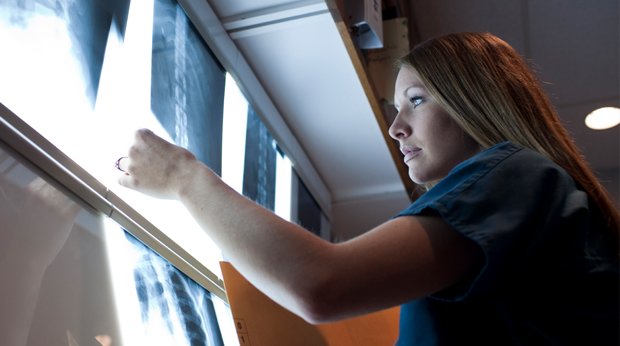
Medical Imaging
La Roche University’s fully online Medical Imaging Program offers the opportunity for you to receive an education while balancing a job, family and other responsibilities.
The Medical Imaging Degree Completion Program at La Roche University prepares students who are RT or RDMS certified for an upward career in radiography, MRI, nuclear medicine, ultrasound and more by earning a bachelor’s degree.
Radiological technologists may transfer in 45 block credits for science courses, and an additional 15 credits for a current ARRT or RDMS certification, for a total of 60 credits. Another 30 credits of coursework may be transferred for a transfer total of 90 credits. This leaves only 10 courses remaining to complete the program.
Coursework
The program positions you to enhance and further develop:
- Interpersonal and leadership skills
- Written and oral communication skills
- Real-world problem solving and decision-making skills
- Learner independence and self-reliance
- An understanding of the research process and its application
- Fundamentals of Management
- Intro to Psychology
- Intro to Sociology
- Business Communications or Technical Writing
- Probability & Statistics or Statistics in Health Care
- Oral Communication or Professional Presentations
- Biomedical Ethics
Career Outcomes
According to the American Society of Radiologic Technologist (ASRT) a bachelor’s degree can open doors to leadership and supervisory roles within radiologic technology or health care administration.
Many hospitals and imaging centers prefer or require a bachelor’s degree for positions such as department managers, clinical supervisors or lead technologists.
Additionally, those with a bachelor’s degree tend to earn a higher salary. A 2019 Wage and Salary survey by the ASRT found that radiologic technologist with a bachelor’s degree earned an average of $5,000 more annually than those with an associate degree.
